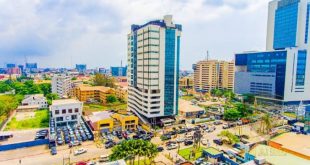
The key is to embrace disruption and change early. Don’t react to it decades later. You can’t fight innovation. Ryan Kavanaugh
The introduction of biometric identification cards for accessing the nation’s seaport has long been over due as this is one of the shortcomings and issues affecting the nation’s port operations. For this reason the Minister Of Transportation, Hon. Rotimi Amaechi at a recent stakeholders meeting, stated that by January, 2017 a new biometric identification card will be issued to all port users, irrespective of their association.

The Minister had stressed that without the identification card, no one would be allowed to do business in the port. What does this mean for the port sector? Yes, we are in a digital age, whereby things are been done technologically, but how does the biometric identification system work?
The biometric identification system is a new digital technology designed to automate the process of recognizing any human being. It is a system that determines an individual identity in part, by distinguishing unique body parts, such as faces and fingerprints. For the identification to be achieved, it needs the individual body or card to connect and correspond with the information on the device. Biometrics uses computer algorithms to translate an image capture of a live person in smaller amount of information, sometimes called digital templates, which can then be captured with the image stored in the database of the computer. Singapore with one of the busiest seaport in the word has recorded some achievement in using this device.

The biometric I.D has also been used in various platforms, ranging from access control in various organizations, to registration of voters for elections. It has also been used by banks to verify their customers’ accounts through Biometric Verification Numbers (BVN). The National Population Commission has also keyed into the innovation by issuing national identification cards to all Nigerians.
Therefore the use of biometric identification card in accessing various ports in Nigeria ought to be a welcome development. This should also bring enormous benefit and advantages which have been recorded in other sectors which have deployed the platform in carrying out their business activities.
The biometric I.D card when introduced to the entire port environment, will go a long way in curbing some of the challenges been faced, by stakeholders in the maritime sector.
A situation where we have all sorts of persons roaming the port environment, does not speak well for the nation. Nigerian ports are the busiest in West Africa but it should be devoid of all forms of abnormalities. Individuals with questionable characters as well as all those who have no business at the port, should be prevented from accessing the seaport. The use of the biometric identification card when the regime begins in January 2017 would be of great benefit to genuine port users and the security of the nation would be guaranteed.
However, the Authority responsible for the issuance and monitoring of these cards hasn’t been revealed, neither has the process started. The processes should kick soonest since Janaury 1, 2017 is barely two months away. The procedure would also require strict supervision and the CRFFN should be contacted to speedily provide the list of registered freight forwarders to ensure that the process isn’t manipulated and guarantee strict compliance is by all persons coming to the port for business.
The introduction of the Biometric I.Ds should also reduce corruption in the ports, the time-lag of doing business will also be reduced. It will also reduce the monumental corruption been experience in the port system, authentic port workers will be identified, likewise freight forwarders and customs agents will also be registered in the central data system.
Nigeria would put itself on the scene as a top maritime nation, meeting global standards with regards to port operations by the introduction of biometric I.D cards. The Hon. Minister of Transportation, Rotimi Amaechi is beginning to walk the talk.
 MMS PLUS NG – Maritime, Aviation, Business, Oil and Gas News Online Newspaper with coverage in Maritime, Oil and Gas, Aviation, Power and Energy as well as Financial News
MMS PLUS NG – Maritime, Aviation, Business, Oil and Gas News Online Newspaper with coverage in Maritime, Oil and Gas, Aviation, Power and Energy as well as Financial News









